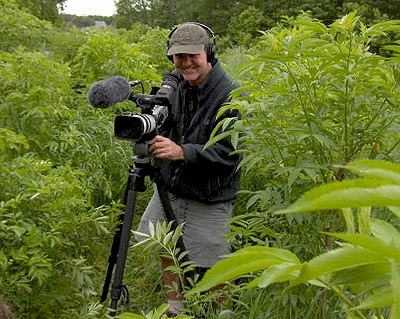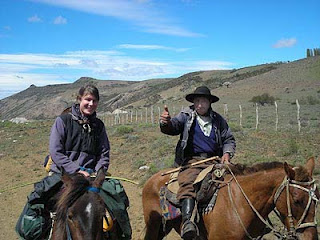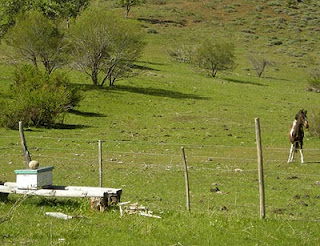the cross pollination of life
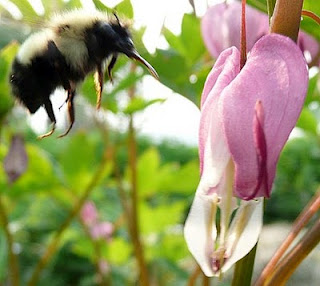
photo Ann D. Watson 2007, author of the Honey Gardens blog
on nectar and pollen plants and
pollinators of the Champlain Valley, Vermont
In the early days of Spring, we visited the bees as the last patches of snow lingered throughout the land. Choruses of frogs sang for weeks, as waves of red maples were lighting up the hills, signaling the end of maple sugaring and also the beginning of the flight of honey bees as they gather nectar and pollen from the same trees that syrup was made from. The colonies of bees that have mite resistant queens and where organic practices are followed continue to come out of the winter stronger.
In the season of abundant dandelion flowers for the bees, we have been splitting the surviving colonies, which makes up for the winter loss. We are encouraging them to raise their own queens this year and support their health with organic mite procedures. Last week, the colonies of honey bees were moved out of the apple orchards.
Another sign of Spring is the lone queen bumble bee flying from flower to flower, gathering nectar and pollen to feed and start their new families. The bumble bees often have more muscles and are larger than honey bees, and can thus fly in the cooler temperatures of Spring. They are native pollinators and social like honey bees; the bumble bees are also a critical piece of our ecosystem and like honey bees, they are at risk. You can find out more, including how to help them, at the Bumblebee Conservation Trust
http://bumblebeeconservation.org/
Wainsworth Brown, David Buchanan, Noel Henry, and Neville Buchanan, Zolfo Spring, Florida, April 2008. The boxes of orange blossom honey have been brought to the honey house for extracting. The bees were just starting to work on the palmetto palm flowers. These men work with the bees in South Florida, and maintain strong ties to their community in Jamaica.
Nearby in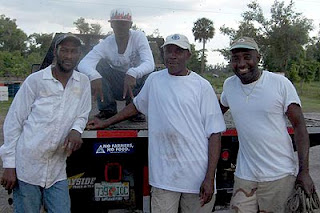 Zolfo Spring, the honey bees were working the flowers in a 180 acre field of watermelon. When these watermelon are pollinated by honey bees, the yield of the fruit is between 80,000 – 90,000 pounds/acres. Without the bees, the farmer only gets 10,000 – 15,000 pounds of melons/acre.
Zolfo Spring, the honey bees were working the flowers in a 180 acre field of watermelon. When these watermelon are pollinated by honey bees, the yield of the fruit is between 80,000 – 90,000 pounds/acres. Without the bees, the farmer only gets 10,000 – 15,000 pounds of melons/acre.
